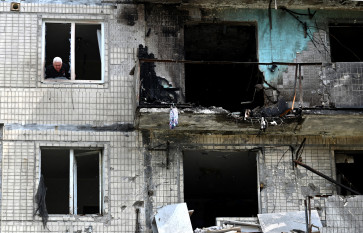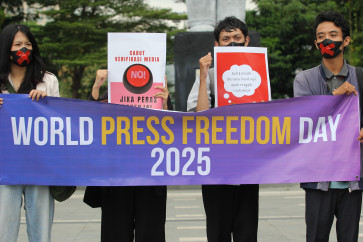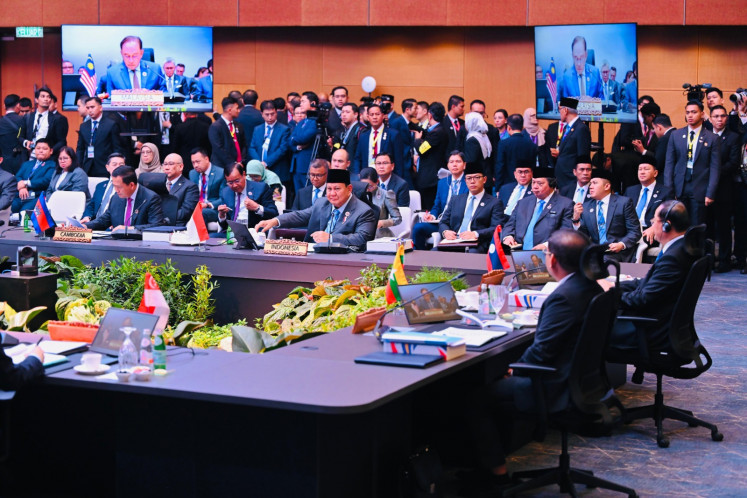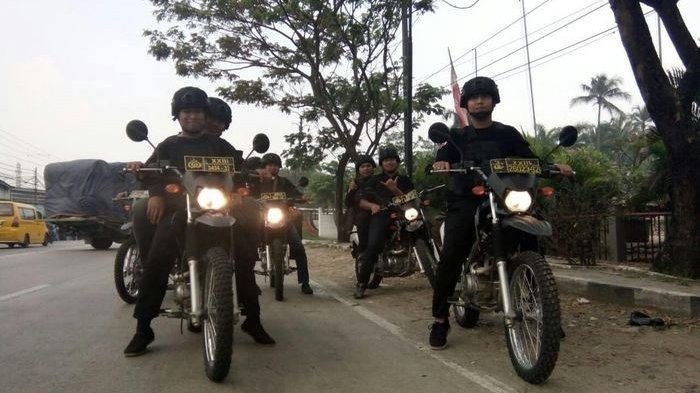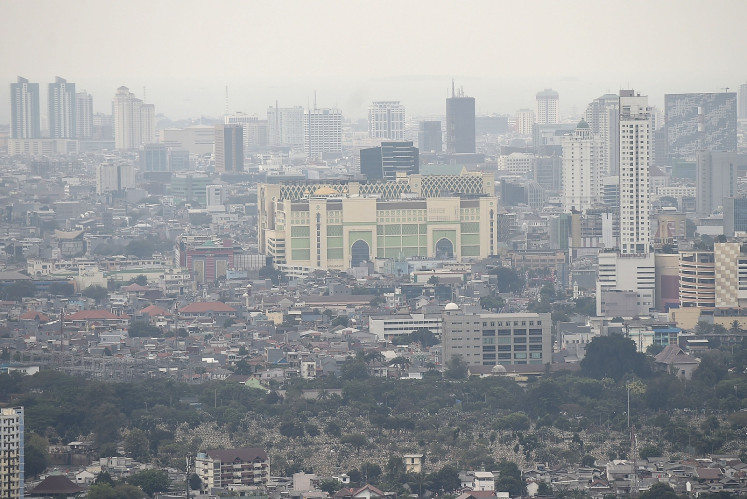Every gray cloud has a silver lining
The economic crisis of 1997 was in some ways a blessing in disguise
Change text size
Gift Premium Articles
to Anyone

The economic crisis of 1997 was in some ways a blessing in disguise. It triggered Soeharto's fall and opened the way for a free press and a better political system without military interference. The current energy crisis, which will inevitably bring about another economic crisis, is also an opportunity to make fundamental changes.
If the 1997 crisis presented an opportunity for political change, our current crisis is an opportunity to implement fundamental economic corrections. The energy crisis is also an opportunity to develop alternative energy systems, particularly using simple technology that harnesses energy from abundant and renewable sources.
We have abundant renewable energy sources that are ready to be tapped without further experimentation, namely solar power, wind power, and biomass energy produced from intelligent waste management. Decentralized, site-specific installations for converting solar, wind, and biomass energy into electricity or heat for cooking would be suitable for households in every city, town and village in this country.
This is cheaper and in every way more realistic than investing time and funds, not to mention credibility, in pursuing claims that go against the laws of thermodynamics, such the claim that economic fuel can be made from water currently in the news.
Some places have more wind or sun or waste than others do. Every place has its unique characteristic and potential for renewable energy. Therefore, it is important that the small-scale energy plants are site specific. While some places would be able to produce more energy than is consumed locally, others would not.
This means that it would be wise to connect all plants, where possible, to the national grid owned by the State Electricity Company (PLN), so that places with a surplus could sell their unused electricity cheaply for PLN to distribute. The use of biomass energy would at once solve the problem of garbage management in large and small cities and simultaneously promote organic agriculture, because the by-product of biomass fuel production is organic fertilizer.
On the other hand, the high level of unemployment is an excellent opportunity to develop infrastructure. Instead of worsening inflation and cultivating a nation of beggars through cash handouts, the government would be wise to accelerate large scale and widespread infrastructure construction.
It is urgent that roads in this country are made suitable for the heavy traffic they carry. The pitiful state our roads are in was tragically illustrated by the accident that killed senior actor Sophan Sophiaan a few weeks ago. That was on a main road in Java. Outside of Java with the exception of Bali, the roads are even worse.
We should reclaim our rivers and canals for transportation. The Bengawan Solo river should be brought back to its ancient glory as a vital economic artery, bringing people and goods from the Java sea in the East, way into the hinterlands in Central Java and vice versa. All Java's big rivers used to be economic arteries but many decades of neglect have silted them up and now the rivers of Java hardly support any traffic at all.
Now is also the time to invest heavily in our railways. If the Dutch colonials could lay down tracks across Java in the few decades after the invention of the steam locomotive, why can't we do better now? It is scandalous that most of our islands do not have a railway system. The shambles that is the railway system in Java should be a major embarrassment, and it has been worsening for decades to the point that train delays are the norm and accidents are too common to make the headlines.
The same goes for our shipyards and ports. Traditional inter-island traders currently brave the elements in unsafe vessels to maintain the flow of goods and people in this archipelago. Instead of being at the forefront of maritime transportation technology, we purchase old vessels from abroad.
Ports, which in ancient times were international trading hubs, currently only provide sub-standard services to small and battered fishing boats. If we developed our ports and shipyards, we would strengthen the traditional connections between the people of our archipelago, because the sea has always united us.
The government would be wise to listen to ex-president Habibie's recent calls for us to "go back to basics". The current crisis is the opportunity to do so. If this time round we get the basics right, we will build the future on strong foundations.
In the process, we would empower people by providing the opportunity for our vast pool of entrepreneurial spirit and skills to shine. The funds used would be money well spent, because it would create an environment that supports the pursuit of wealth. Widespread individual prosperity means a wealthy country.
There is a saying: Give a person a fish and he has food for a day, but teach him to fish, and he will have fish for the rest of his life. Periodic cash handouts are the same as giving people a fish -- but worse, as the "fish" will gradually become smaller due to the inflation the handouts cause.
Building infrastructure, on the other hand, is even better than teaching a man to fish, for when the country has solid infrastructure, people will be able to engage in the trade of many ideas and goods and services, not only in fish. The people ultimately develop a country's economy much more effectively than any government is ever able to.
The process of building infrastructure will not only provide jobs. From a spiritual point of view, it will empower and humanize the workers. Blame colonialism, feudalism, corruption, militarism, racism and poverty; the fact is we have been systematically dehumanized for many years.
Therefore, projects that humanize people are as important for our souls as rice is for our bodies. Money earned by labor enhances human dignity. More dignity means less crime, less corruption, less oppression, less cruelty, less environmental destruction and more happiness.
The writer is an artist and former journalist. He can be reached at bramn4bi@yahoo.com


